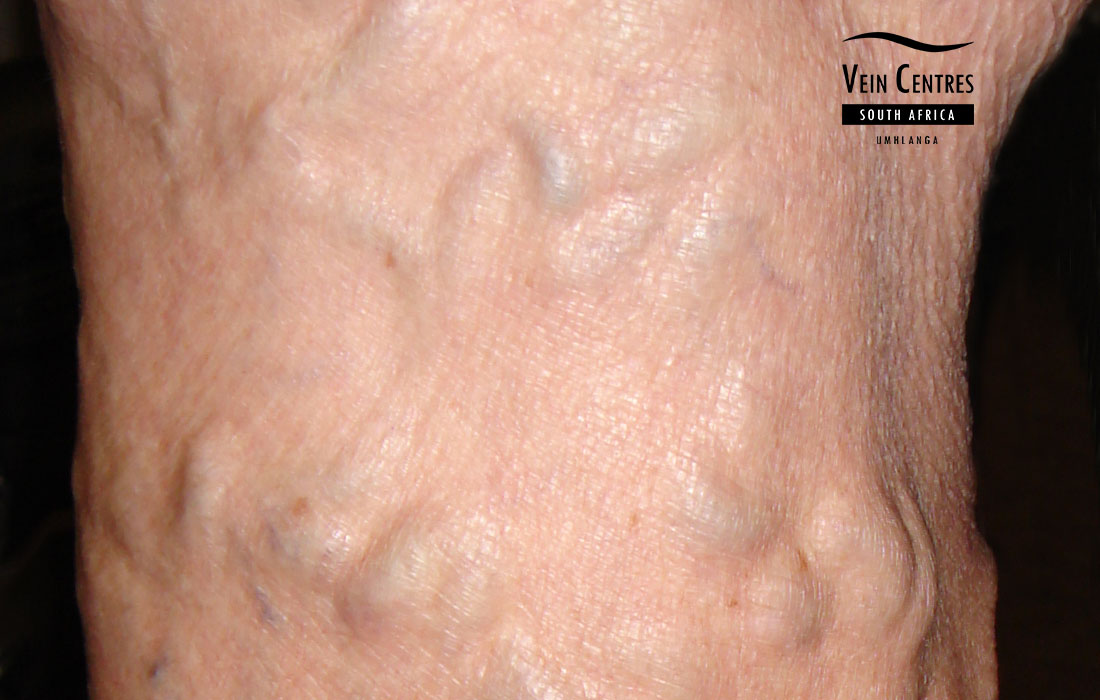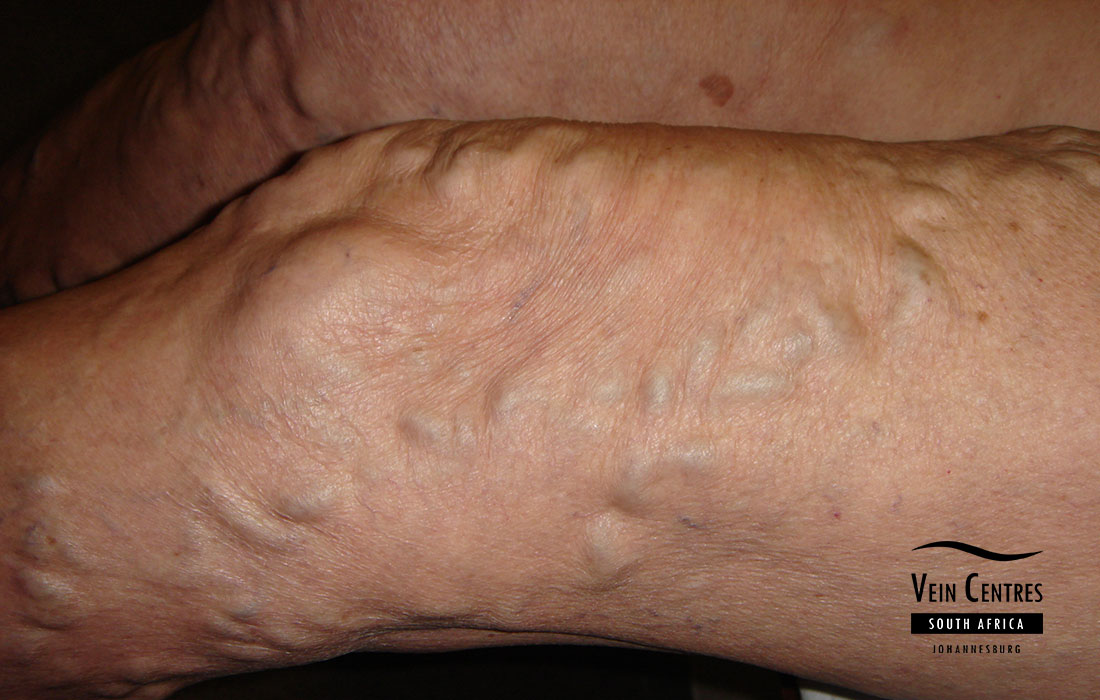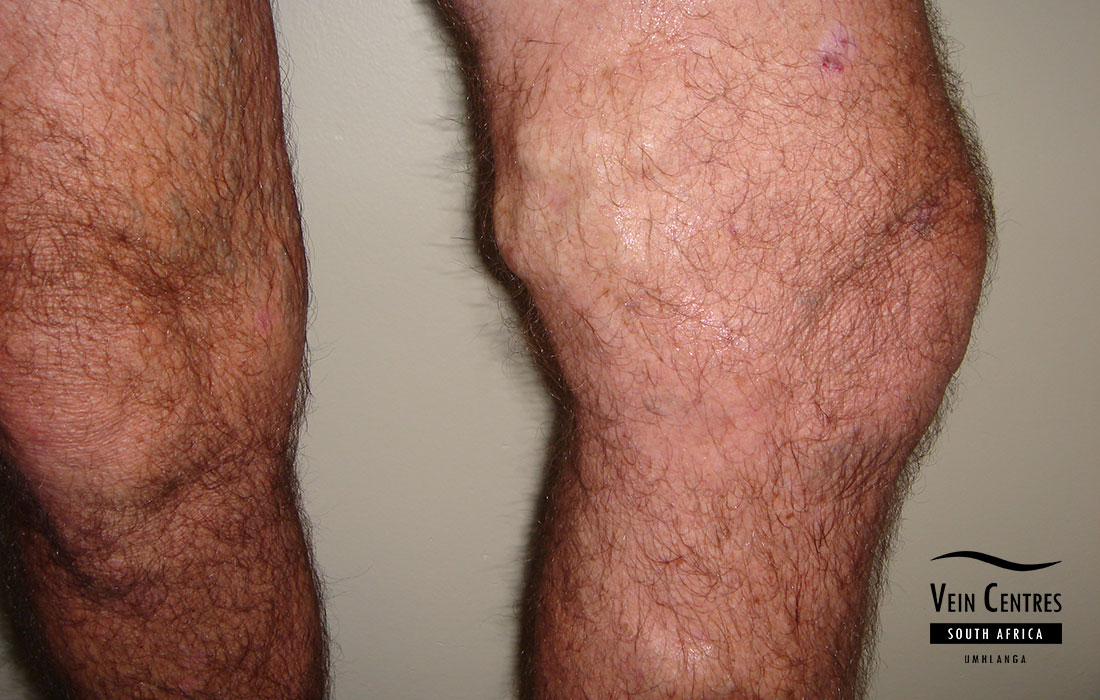About Leg Veins
The circulatory system is made up of both veins and arteries. Arteries delivers fresh oxygen rich blood from the heart to all tissues and veins then collect the oxygen-depleted blood again and transport it back to the heart.
The heart will pump blood through the arteries, but not all the way through the veins.
In the lower limbs, blood requires a different transport system to return it, against gravity, back to the heart. This transport system is made up of a pump again, the “calf pump” and one way valves within the veins.
It is for this reason that walking is a great way to keep your legs healthy, since the calf pump is activated all the time.
Broken one-way valves in the legs will cause blood to flow back through the vein and pool in the lower legs, this is known as venous reflux, and often presents as varicose veins. Varicose veins are large blue tortuous vessels that buldge from the surface of the skin.
Varicose Veins in Pregnancy
Why do you get varicose veins when pregnant?
During pregnancy a few normal physiological changes take place in your body.
Your blood volume increases,
pregnancy hormones(progesterone) are released and they cause vein walls to relax and as your baby grows, the uterus and placenta enlarges and exerts pressure on your large abdominal veins, causing an obstruction to blood flow.
You may already be predisposed to the development of varicose veins with a family history of veins.
So to recap then, you have more blood circulating, the vein valves are struggeling to keep the blood flowing in the direction to your heart,
since the vein walls are relaxed and then there is an obstruction at the top!
Can my varicose veins be treated during pregnancy
No. Most surgeons prefer to wait until the baby has been born to attend to varicose veins. The reasons for this is that your veins will naturally improve after
delivery of your baby and any procedure or medication during pregnancy might have an adverse effect on you and your baby.
Treatment of your varicose veins
during pregnancy is confined to the use of graded compression stockings. These stockings can be prescribed by your doctor.
Will I get varicose veins in other parts of my body?
Varicose veins is very common during pregnancy. Sites other than the legs include the rectum as piles, vulva and vagina. Vaginal or vulval varicose veins can be distressing, but will clearup in most cases once the baby is born. If they persist, then book an appointment to see us, they can be treated.
Will my varicose veins disappear after pregnancy?
Yes, in most cases they will. Some patients will however still have veins after pregnancy. It is advisable to seek treatment at that time. The old adage of waiting until all your babies are born is not really good advice anymore. Once your vein valves start leaking, it is best to have them treated to prevent painfull varicose veins in your next pregnancy.
Varicose veins management in pregnancy
These tips will help alleviate the pain of varicose veins during pregnancy
- Exercise daily - walking is a great way to keep your legs healthy
- Elevate your legs when possible
- Don't sit or stand for long periods
- Keep your weight within the recommended weight range
- Sleep on your left side, this relieves the pressure on your large veins
- Use graduated compression stockings



